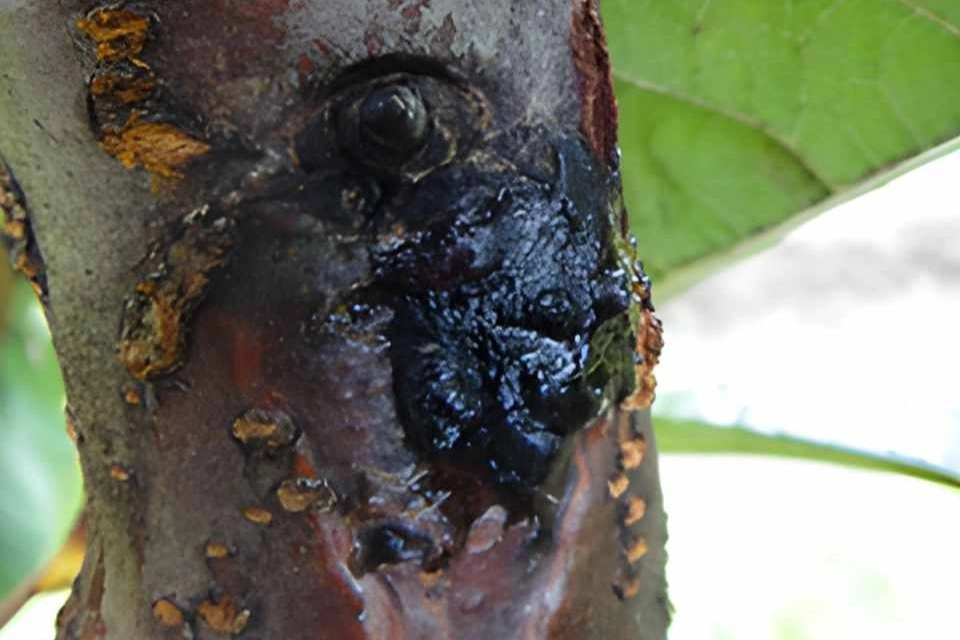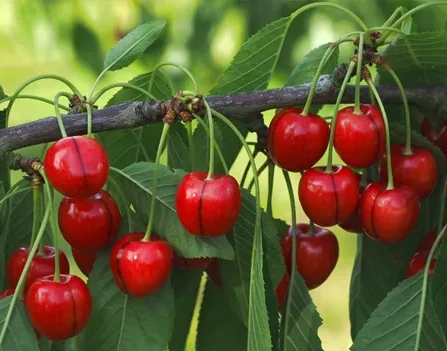The results of the research on cherry trees by the Agrion Foundation previewed for the readers of Cherry Times.
Tuesday, July 9, at the Agrion Foundation fruit research center in Manta, Via Falicetto, 24, 12030 Manta CN, a technical meeting on Cherry, Apricot, and Almond trees was held.
Regarding the cherry tree: in Piedmont, the current area is 374 hectares (ISTAT data). Commercial interest remains high despite the challenges posed by the high sensitivity of many cultivars to cracking and the damage caused by Drosophila suzukii and the more recent Forficula auricularia.
As for Drosophila suzukii, early damage in early June was noted due to high humidity and the generally cool climate, conditions that favored the fly’s activity and attacks on the earlier-ripening varieties. However, the population remained stable during monitoring, without high peaks in presence.
The Agrion Foundation, together with the Piedmont Region and the University of Turin DISAFA, will also be engaged this year in the release of the Drosophila suzukii parasitoid, Ganaspis brasiliensis. This marks the third year of releasing the natural enemy of the small fruit fly (the fourth for some locations), aiming to strengthen the population in the Piedmont area to effectively counter D. suzukii.
Among the most important cherry varieties discussed were:
- Areko* (+17) - Derived from the cross of Kordia x Regina. Medium-high vigor tree. Fruits are well distributed on the tree, characterized by long stems. Large size. Flesh is of high consistency and has a good sweet and aromatic flavor. Low sensitivity to cracking.
- Henriette* (+20) - Recently introduced cultivar characterized by medium-large size, attractive fruit appearance with dark red skin color. The flesh is highly consistent and has a good sweet and aromatic flavor.
- Cerasina®Final 12.1 (+37) - Exclusively managed cultivar. Self-fertile. Medium-low vigor tree with high productivity. Heart-shaped fruit with regular large size (30-32 mm). Requires thinning in years with heavy fruit load. Flesh of good consistency and balanced flavor. Low sensitivity to cracking.
- Cerasina® Prim 3.1 - Extra-early ripening. The tree is medium vigor with a compact vegetative habit. The fruit is large (30-32 mm), with dark red skin, very attractive. The flavor is good, sweet, and aromatic. Low sensitivity to cracking.
Another topic addressed during the meeting was phytopathological issues, particularly: Bacterial blight (Xanthomonas campestris pv pruni), Brown rot, Aphids, and Leafhoppers.
Agrion researchers Davide Nari and Valentina Roera presented the latest updates on cherry and apricot variety comparisons, while Francesca Pettiti and Luca Nari showcased the Agrion experiments on Forficula auricularia and Drosophila suzukii.
The second part was dedicated to sharing the results of the initial experiences with almond cultivation in Piedmont, at the Cascina Palazzo farm in Cuneo. The data were presented by Agrion researchers and Simone Marchisio from Coldiretti Cuneo.
To download the Agrion technical meeting presentation click here
To download the update on Drosophila suzukii and earwig click here
Source: Agrion
Image: SL Fruit Service
Cherry Times - All rights reserved










